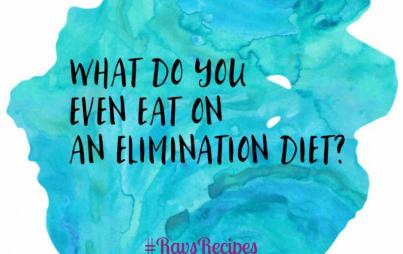
Photo by Brett Jordan on Unsplash
This article first appeared on Role Reboot and has been republished with permission.
“Why don’t you like my cat?” my childhood best friend asked through her downturned mouth. “Give him a snuggle.”
“My mom says I can’t,” I shrugged. “I can’t touch his fur.”
“Well it’s not his fur. It’s his dander. It’s just cat spit!”
Just cat spit had, along with many other things, lit up my forearm at the doctor’s office a few weeks ago. I was an asthmatic child and spent many hours of the day managing my condition via peak flow meters, inhalers and nebulizers. Desperate for answers as to what was triggering my asthma attacks, my parents took me to an allergy specialist.
The scratch test concluded all of the above. I stared down at the grid of red welts on my forearm and recited their catalysts. Hay fever, dust, pollen, ragweed, mold, smoke and certain furry friends. Many years later when my throat closed up after toasted almond ice cream, I would add nuts to the litany of things to avoid.
Now for the first time in my life, I live with a cat because my partner owns one. I prepared for this adjustment like an impending apocalypse, scouring online forums for advice from cat owners, buying new brands of allergy meds to try, and stockpiling dander remover and lint rollers. Throughout the process, I noticed that some pet owners became incredibly touchy over the idea of prioritizing health over kitty. When others before me asked how to keep cats out of bedrooms, the responses were often unhelpful (“Just let them in!”) or unnecessarily nasty (“Don’t have a cat if you’re going to keep them blocked out of places! Just take a pill and get over it!”).
You Might Also Like: My Son Has FPIES, And I Hate Food Allergy Awareness Month
After talking to some friends with severe, persistent allergies, I realized that allergies, much like mental health, are largely misunderstood and often dismissed as trivial or exaggerated. Here are some facts to set the record straight for allergy shamers.
Fact: Allergens are everywhere, all the time.
A lot of people don’t realize how agonizing and sometimes dangerous allergies can be. Pets, pollen, food and firewood may look harmless to a non-allergy sufferer, but as is the case with any chronic condition, allergy sufferers have to go to great lengths to avoid these items. In college, one of my friends couldn’t even approach the dessert table because of her peanut allergy – instead, she would ask us to report back on what desserts were available and then bring her what she wanted. The massive, uncovered bowl of peanut butter sitting on the table would trigger her anaphylaxis if she got too close.
My friend Chris pointed out that “no one seems to understand how allergies can exist in the winter time, as if there are no allergens indoors!” I attribute a lot of this misunderstanding to allergy commercials, which typically only show sufferers reacting in outdoor settings. My outdoor allergies flare up depending on what region I’m in, but indoor allergies like dust, mold, and dander can strike anytime and anywhere. I have to keep an eye on how much time I spend at friends’ houses with certain pets who set me off. At best, I’m prepared for a day of feeling sick, which usually means nasal congestion, nausea, and lethargy. At worst, I run the risk of developing a sinus infection, which can keep me down for a week or longer.
Fact: People who are allergic to or intolerant of certain foods or skin products are not “snobby,” and safe alternatives are not “preferences.”
Some people with allergies have to change their diet or avoid purchasing certain products. Unfortunately, they are often ridiculed for needing alternatives and accused of simply being particular. “I was listening to a stand up routine that mocked people with allergies,” my friend Amanda said, “and [was thinking about] people who tell me I’m being snobby for being allergic to certain laundry soaps.” Another friend of mine, Telaina, said that her daughter was hospitalized with anemia a month after her celiac disease diagnosis and that she is “already so over ‘How bad can a gluten allergy be?’” My college classmate Dominique shared a similar story about her severe milk allergy. “I was hospitalized repeatedly by parents who thought they could help me build up a tolerance,” she said. “I cut out dairy from my diet, [but there is] a perception that I am being snobby when I order a soy latte as a treat.”
Dominique goes into anaphylactic shock if she drinks milk, which is what happens to me if I eat tree nuts. I often ask what a restaurant’s pesto is made with, and even though the question might sound fussy, it matters greatly. Pesto made with pine nuts (which are actually seeds) is harmless. But the last time I accidentally had pesto made with cashews, I ended up collapsing and being fitted with an oxygen mask. Is it snobby to want to stay out of the hospital?
Fact: People who are allergic to certain pets and avoid them are not “mean.” They’re prioritizing their health.
Pets are harder to discuss in a clinical way than food or pollen because our pets are our family. However, allergies to animal dander are relatively common, and cat allergies are about twice as common as dog allergies.
I have found a way to live with my partner’s cat thanks to the right antihistamine, a few air purifiers, and diligent vacuuming. But depending on the combination of person and pet, sometimes cohabitation or even visitation is not an option. “I find that what people don’t understand is that once I’m exposed to [the cat], I feel like crap for two days,” my friend Stephanie said. “People who say ‘oh, we will just put the cats in another room while you’re here,’ [but it’s] not always helpful because there’s already dander and hair throughout the house.”
Amanda eventually had to rehome her dog upon discovering that her son is severely allergic. “I was absolutely assassinated by a couple of pet lovers over it,” she said. “When I said the health of my child came before the animal I was told I should have considered that before having children.” Thankfully I know many pet owners who are sympathetic to others’ reactions, and will take the time to clean so that their guests can breathe. But no one should have to deal with the nastiness Amanda received for responsibly rehoming her pet and taking care of her son.
Fact: Allergy sufferers are not about “looking for attention.” We often feel really embarrassed and self-conscious about them.
A few friends that I spoke with described themselves as “former allergy shamers” who completely changed their tunes after they developed allergies later in life. “I discovered I have a really weird allergy to jackfruit,” Tom said. “Fast forward to a dinner where my girlfriend points out the jackfruit lettuce wraps and I have to tell the server I can’t have my food touch the surface where that’s prepared.” Amy, also a late bloomer, didn’t develop allergies until after she had her son. “I was one of those ‘just take a pill’ people,” she said. “But now I totally get it!”
Being allergic to a multitude of things has gotten easier with age as I’ve learned how to navigate the world accordingly. But there are still times when I feel, as my friend Nadia put it, “like a diva” for not being able to light the wood-burning fireplace or eat the homemade carrot cake. My hope is that with better education efforts, both allergy sufferers and non-allergy sufferers can let go of the shame surrounding these issues.





![[My son] is not gross. [My son] is not gross.](/sites/default/files/styles/profile/public/images/article/2019-05/image1%2520%25289%2529.JPG?itok=WmvvKF9O)


